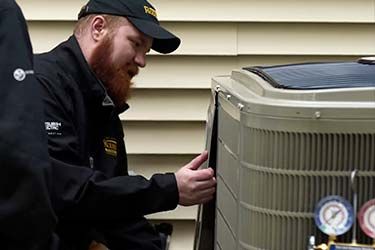



If you’re planning to install a solar system in your home, you’re ready to embark on the learning experience of a lifetime. But to reap the rewards, you should launch the planning phase now so that you’ll be ready to break ground before summer.

Solar systems convert the radiation of the sun to generate electricity through a series of photovoltaic (PV) panels installed on the roof of a home that, from a distance, resemble a series of skylights. Heating your home with solar power can significantly reduce your bills in the winter, curbing greenhouse gases and air pollution that result from the burning of fossil fuels, while simultaneously decreasing cooling bills.
Selecting the appropriate solar energy system requires the assistance of a certified solar professional, since many factors come into play, including the layout of your home, its heating load and its sun exposure. While it’s true that homes whose roofs face south are especially effective at capturing the sun’s rays, virtually any home can benefit from a solar system.
Keep in mind that the general rule of thumb is to design and install a system that can provide between 40 and 80 percent of your home’s heating needs. Anything less than that probably won’t end up being a cost-effective investment.
Planning a solar system requires close and proper investigation of:
Some zoning snags are commonplace with solar systems, including:
It may help to view these snags as only setbacks, as most municipalities embrace solar technology, and so may be eager to give you a variance to install your solar system.
The solar system professionals at Rodenhiser Plumbing, Heating & Air Conditioning stand uniquely qualified to help you choose the most efficient solar system for your home, while educating you about this cutting-edge technology. We've served the Metro-West Boston area for more than 80 years; call us today and find out why.
Our goal is to help educate our customers about energy and home comfort issues (specific to HVAC systems). For more information about other HVAC topics, download our free Home Comfort Solutions Guide.
Solar image via Shutterstock





Both Alex and Patrick were knowledgeable, courteous, and professional. They made a change that might have solved the recent problem and have structured a more complete solution. We agreed to this...
Mike was thorough, thoughtful and considerate. Covered their shoes before entering, surveyed my issue and provided an explanation of the services and costs. Great Job!
Alex did a great job providing an explanation of the services provided and went out of his way to offer assistance/advice on other issues outside of our scheduled maintenance visit.
Brian did an excellent job inspecting our 18-year old boiler and replacing some of the accessory hardware that needed it, he also adjusted the outgoing hot water settings for our radiators and...
Rodenhiser is my one stop shop!!! They take care of my HVAC, electrical, and plumbing issues & are always helpful addressing any questions I may have about the systems in my house! Everyone...
Chris G. and Nick V. showed up bright and early at 8am to fix my water heater issue. They were on time, polite and were able to fix an issue that has been plaguing my house for a good year. They...
When you are looking for plumbing, electrical, heating or air conditioning in the Route 495 / 128 area, you will be delighted that you called Norfolk MA' trusted choice since 1928.
With a total dedication to professional workmanship and excellent service, discover why families and businesses continue to trust Rodenhiser after generations of service







